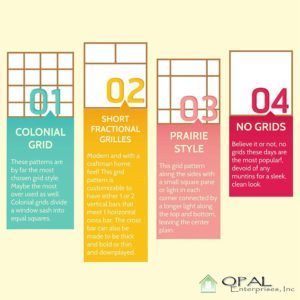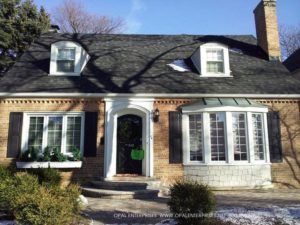Your house should be a peaceful oasis, sheltered from the din of traffic, neighborhood music, and dogs barking outside your doors. But, unfortunately, a lot of that unwanted noise can make its way into your home through aging or poorly installed windows.
The solid construction of today’s windows, especially those that are adequately sealed (without gaps or leaks), makes replacing them an effective way to block external sound. However, the amount of noise reduction you experience will depend on how old your current windows are and which noise-reducing options you choose when replacing them.
How Does Exterior Noise Get Into My House?
Sound is produced when an object vibrates, disturbing nearby molecules and creating a ripple effect that causes everything in its path to vibrate with the same frequencies. As these vibrations get farther from the sound source, their energy diminishes, and the sound fades away.
Even if your house seems well constructed and insulated, outside noise will often still find a way in. This is because although sound waves move efficiently through the air, they can also travel through solid materials like your home’s walls, doors, and windows.
To reduce the amount of exterior sound that makes it into your house, you want materials made of non-conductive elements in the vibration’s path to dampen its energy. In addition, the more layers you have between you and the sound source, the quieter your interior space will be.
How Do Noise-Reducing Windows Work?
There is no such thing as an entirely sound-proof window, but noise-reducing windows can help block out unwanted noise and give you more control over your surroundings. They do this by:
- Creating sealed pockets of air: Multiple panes of glass are separated by a sealed space so that air cannot pass through it. Since this air is restricted, it cannot conduct the vibrations of a sound wave the way air normally would.
- Using material that resists sound transmission: Dense, less flexible materials like the aluminum of older window frames conduct sound waves better than others. Modern vinyl windows, on the other hand, can absorb and dampen sound.
- Reflecting the sound: Some noise-reducing window panes work by reflecting sound. As a result, the sound waves bounce off the window rather than passing through it and into your home.
- Blocking specific frequencies: Sound waves have varying frequencies depending on how fast the waves are traveling. For example, thicker panes of glass can block low, rumbling bass frequencies, while thinner glass is better at stopping higher treble pitches.
What Type of Windows Are Best for Noise Reduction?
Window manufacturers adhere to industry-wide standards when assigning sound reduction ratings to the products. The sound transmission class (STC) number measures the decrease in decibels as vibrations of various frequencies pass from one side of the glass to the other.
Since this is a standardized scale, you as a consumer can quickly see how much noise a particular window will block compared to other models. STC ratings for windows generally range from about 21 to 55. The higher the number, the better the window is at reducing noise.
Windows with higher STC ratings are typically those with features like:
- More panes of glass: Most windows today have at least two panes, and many manufacturers offer triple- and quadruple-pane options. The greater the number of glass layers with air pockets between them, the more buffer there is to absorb and stop the sound waves.
- Laminated glass: Laminated glass is thicker than other panes, and both sides of the glass are coated with plastic, so they are better able to deflect sound.
- Dissimilar glass: These windows have multiple panes with varying levels of thickness, which allows them to block both high- and low-frequency noise.
How Do I Stop Noise Coming Through Windows?
The best way to effectively stop noise from coming through your windows is to replace them with higher STC-rated alternatives. However, if you’re not quite ready to take that leap, there are other things you can do that should help in the meantime. For example:
- Apply fresh caulk to fill in gaps around the frame.
- Seal around the panes with weatherstripping tape.
- Hang noise-reducing curtains and blinds to absorb the sound.
- Build plugs that you can place in the window to block sound. Unfortunately, they will also block sunlight, so make sure they are temporary so that you can remove them when they aren’t needed.
- Ensure that your windows are correctly installed and are the right size for your space. If you’re uncertain, call the expert installers at Opal Enterprises to take a look and make adjustments if needed.
Quality Window Sales and Installation in the Chicago Area
Although some short-term fixes will help soundproof your windows, the best way to reduce unwanted noise coming into your home is to replace your old windows. Visit the Opal Enterprises showroom today to find out about our noise-reducing windows options.
We also offer free consultations, flexible financing options, and a lifetime labor warranty on all new window installations. So, contact us today to get started!





